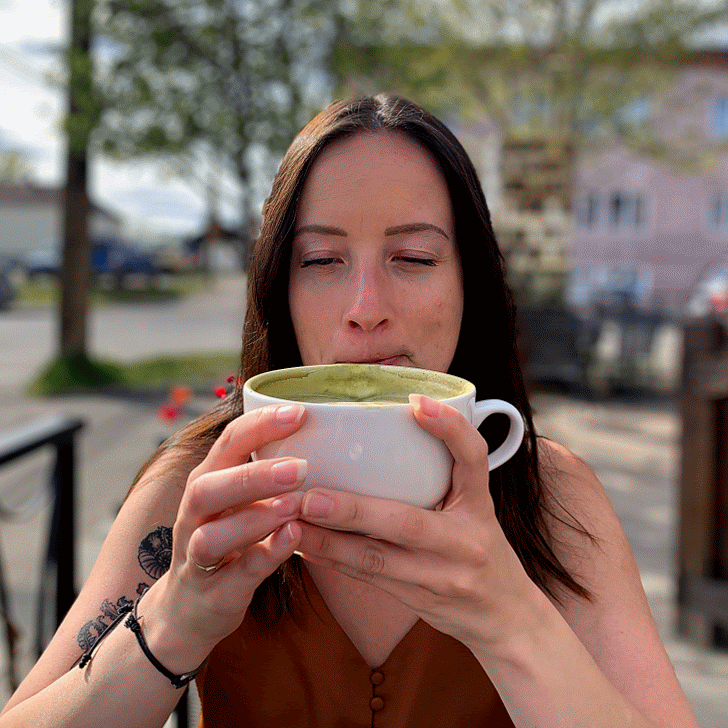I get asked this a lot because I’m often sippin’ on booch. It’s a fermented tea with probiotic benefits. It’s made with a SCOBY (Symbiotic Culture/Colony of Bacteria and Yeast) that proliferate by eating raw cane sugar. Not all SCOBY’s contain the same strains of bacteria. Generally, you would see Acetobacter, Saccharomyces, Brettanomyces, Lactobacillus, Zygosaccharomyces, Gluconacetobacter. It is genetically similar to apple cider vinegar with the main difference being that kombucha contains gluconic acid.
The caffeine content of Kombucha is reduced by 25% over the course of a 2 week fermentation period. Despite this, indulging in more than 12oz per day is not recommended, especially before bed because it is still caffeine. It can be made with rooibos tea, which is caffeine free. Kombucha also naturally contains a very small percentage of alcohol. Commercially brewed should be less than 0.5% through pasteurization or various other alcohol reduction methods. Homebrew could be as high as 2%.
Green and black tea contain polyphenols which have antioxidant qualities that protect the body against oxidative stress which multiplies during the fermentation process. I feel like booch gets a lot of credit for things that it doesn’t actually do because of our limited knowledge of probiotics. There is evidence that it can help with diarrhea following antibiotic use as well as irritable bowel syndrome and other intestinal inflammatory disorders. What it cannot do is regenerate a culture that has been completely wiped out by antibiotic use. No probiotic supplement has been proven to repopulate a dead strain.
Most notably, as they pass through your digestive tract, the probiotics will have an immunomodulating effect on the existing bacteria whether it is natural or acquired immune response. There is not yet concrete evidence of its effect on other inflammatory responses such as arthritis, asthma or eczema.
Store-bought Kombucha can present a risk to people with candida overgrowth due to added sugar content. The yeast culture contained in homebrew is a beneficial yeast, and is proven to help with an overgrowth of Candida Albicans. A first-time drinker may experience a flare-up. This is usually temporary and possibly a detoxification effector die-off referred to as Herxheimer reaction which should begin to rebalance itself. This is why it’s important to start slow.
If you are new to Kombucha and want to try for the first time, I like the GT’s brand and I would start with 1/4 of a bottle per day. I name drop GT’s because they are the industry leader. They have 2 different kombucha lines, the standard kombucha with organic flavouring and their Synergy line is the one made with actual fruit juices so that is the one I opt for. They are all under 0.5% alcohol content and U.S. residents have access to their 21+ line that is completely raw.
As always, this is good in moderation and not for everyone.









